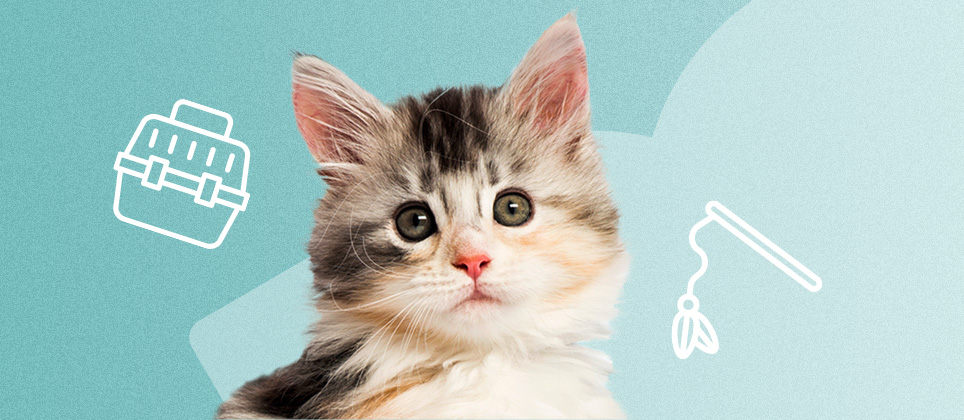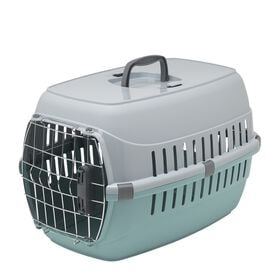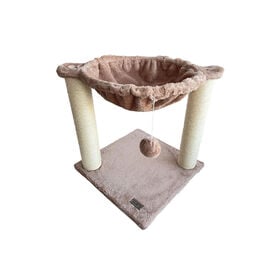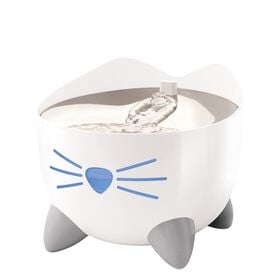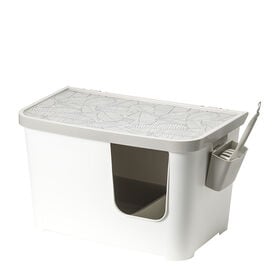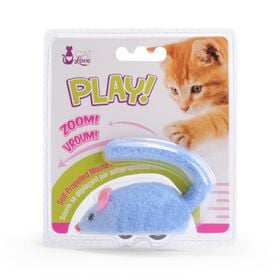After thinking long and hard about adopting a cat, your family is finally ready to bring one home! It’s a big occasion, not only for you but for the cat as well. Have no fear: we’ll be there with you every step of the way.
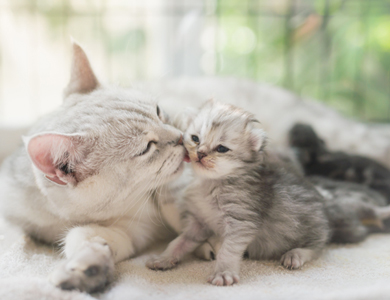
Choosing the right time
Kittens should never be taken from their mothers too early; between 8 and 14 weeks of age is ideal age for adoption. This gives kittens enough time with their mother, which will help them adapt and socialize better.
And the best time to bring your cat home is on the weekend, because it’s important for you to be there! However, make sure not to bring your new cat home at the start of your vacation, as you don’t want them getting used to you being around all the time.
Remember that, for your kitten, your home is a completely new and foreign environment. Try to rein in your enthusiasm and keep calm and quiet. Avoid passing the kitten around from person to person and teach your children to be calm and gentle to avoid causing stress to you cat!
Smooth moves, good reflexes
- Learn how to handle your kitten with care. Sudden or rough movements can be terrifying.
- The best way to carry a kitten is to put one open hand under its rib cage and, in the case of larger cats, another under its hind legs.
- Schedule a visit with your veterinarian a few days after your kitten’s arrival for basic vaccinations, getting your pet microchipped and to discuss sterilization.
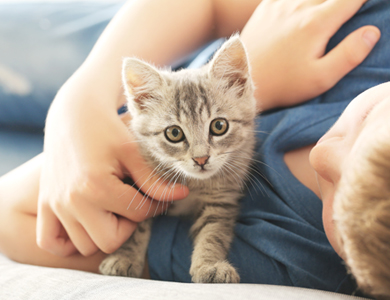
Introducing your kitten to the family
It is important to follow a few rules so that the cohabitation goes smoothly.
Children
Children usually want to cuddle and pet a new kitten a great deal, and they also tend to get overexcited and pull its tail. Although adult cats know very well how to avoid children when they don’t want to be bothered, kittens won’t do that. So, you need to explain to your children that the kitten is not a toy, that it needs a lot of sleep, and that it’s not okay to wake it up just to play with it.
Other pets
Meeting your family’s other furry residents is a very important step that will influence your kitten’s smooth integration into its new home. The process should be gradual and remember to go easy from the start.
Exploring your home
Although we may not realize it, our homes are dangerous places where even one wrong move or a moment of forgetfulness can threaten your kitten’s safety. However, by adopting a few new behaviours and making a few changes around the house, you’ll spare your kitten more than a few unfortunate domestic accidents.
Household hazards
- Kittens have the annoying habit of getting comfy in closets, drawers and clothes hampers, not to mention the potentially catastrophic washing machine or clothes drier drums. By scouting the house for potential hiding spots for your kitten, you’ll reduce the risk of accidents.
- It’s also a good idea to get used to looking where you’re about to step, and remember not to close doors until you’re sure that your furry little friend isn’t in the way.
- Never leave your kitten unsupervised, whether indoors or out.
- You should also find out whether your house plants are toxic. Kittens tend to enjoy nibbling on vegetation in the home.
Kitten-proofing your home
Hide electrical wires, cover outlets with safety plugs, and put away pesticides and other toxic products, as well as medications and small objects such as elastics, thumb tacks and needles. Also, never leave plastic bags or objects made from polyurethane foam lying around.

Starter kit
Everyone is getting set for the big day, and excitement is building, but have you thought about everything your new companion is going to need?
Here are a few tips to plan your shopping trip:
- Food bowl: Place a bowl of food close to your cat’s water bowl and far from the litter box.
- Food: It’s best to choose dry food formulated for your cat’s age.
- Water bowl: Set out a number of bowls of fresh water throughout your home.Failing that, we highly recommend using an automatic fountain, which cats love.In fact, fountains encourage cats to drink more, which helps prevent urinary tract issues later on.
- Litter box: Buy a litter box that’s deep and large enough for adult cats, along with a scoop for cleaning the box. Litter boxes with covers are best avoided.
- Scratching post: This will give your cat something to scratch other than your furniture.
- Cat tree: Make sure your kitten has a cat tree to go to, especially if you have other pets in the house.
- Toys: Buy toys that are appropriate for your cat’s size, and avoid giving it kids’ toys to play with
- Brush: Purchase a cat brush and use it to groom your cat regularly to help prevent hairballs.
- Kitty carrier: For rides in the car, you should use a kitty carrier sized for adult cats.
